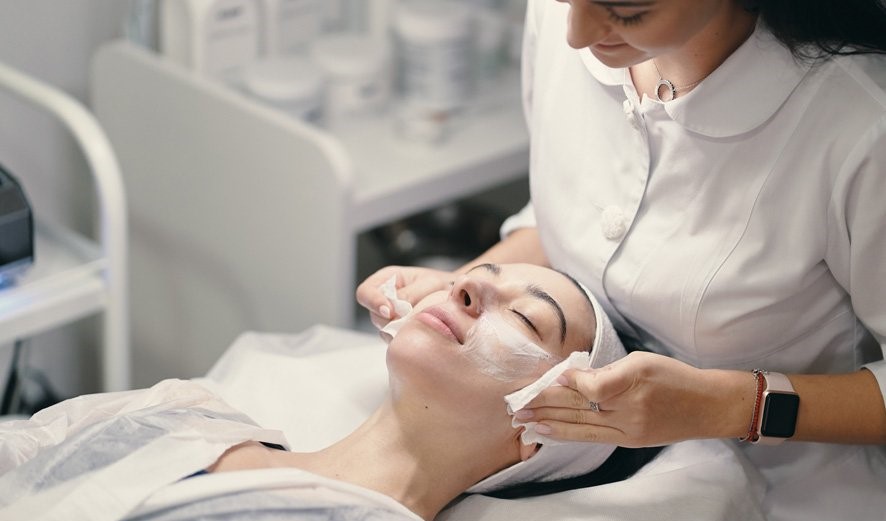
It’s essential to get beauty liability insurance to cover all that you do as a beauty therapist, whether you work in a salon or as a mobile beauty therapist.
As a beauty therapist, you’ll come into contact with various products and tools that allow you to do your job. This includes everything from hot wax to eyelash dye, chemical peels and, of course, lots of potentially dangerous tools.
Even when you try your utmost to give your clients the best possible experience, things might not always go to plan. Should your client have an adverse reaction to treatment or even injure themselves in your salon, you will be liable if they decide to take legal action. Here’s what you need to know about beauty insurance.
Beauty Liability Insurance
The general umbrella term for insurance you need is beauty liability insurance. The term ‘liability’ is key, as it covers not only your legal costs but the compensation you’d be liable to pay.
Without beauty liability insurance in place, if you were to be sued, then you’d need to fork out all of these costs yourself, which could quite easily ruin your business. Due to the unpredictable nature of legal cases, beauty liability insurance will protect you against all eventualities.
Public Liability For Beauty Therapists
Starting with the premise that you carry out your beauty treatments in person, any mobile beauty therapist, home-based beauty business or beauty salon will need public liability insurance. Beauty public liability insurance will cover you if a member of the public is injured while on your property or due to your work, though crucially it doesn’t cover treatments you will carry out.
As you’ll be working directly with the public, you should have public liability insurance that is specific to the beauty industry. This will protect you in case a client is injured in your place of work. Or if their property is damaged because of your business.
Scenario example: You apply massage oil to a client’s feet, and when they stand up, they slip over on your tiled salon floor and break their ankle, therefore can’t work.
Product Liability For Beauty Therapists
Product liability covers any beauty products that you sell a client that cause them injury or damage. Even when you just consider skincare treatments, there are a range of acids, peels, retinols and more available for consumer purchase, that most salons will sell to clients as an at-home treatment.
In particular, if you recommend a course of products to a client, and it turns out they are inappropriate for their skin type, it could cause lasting damage or irritation. Ensuring your product training is on point certainly helps, but having product liability insurance will cover your back if the mistake was accidental.
Scenario example: A junior member of staff sells a pregnant client a skincare product high in Vitamin A, without realising it is known to cause harm unborn babies. If no disclaimer exists on your website and you don’t check with them, you would be liable.
Treatment Liability For Beauty Therapists
Treatment liability insurance will offer peace of mind not only to yourself but to your clients too. As part of the process, you should ensure clients fill out a form before their visit, to assess their suitability for the treatment. Doing so will also help you manage your salon reputation, especially in the age of social media reviews.
No amount of training or patch tests can totally exclude the risk of a treatment going wrong. There are so many skin types, and conditions that exist, meaning things aren’t always going to be plain sailing. As is the case with allergies, they can run in cycles meaning a client can suddenly become allergic to an ingredient, despite never having an issue with it before. This is why you need cover for the treatments you provide.
Scenario: The hot wax you use on a client burns their sensitive skin, causing it to blister.
Compare Beauty Insurance
Before buying a beauty insurance policy, you’ll want to compare both prices and features of multiple plans in the market. Just like selecting a nail colour, it pays to take your time to consider your needs and compare prices when it comes to beauty insurance, as there are so many different types available.
Things to look out for are insurers who cover your industry directly, and state exactly what they will and not cover within the treatments you provide.
If possible, choose an insurer who can be contacted 24/7. After all, say if your salon was broken into, you’d want to be able to arrange cover straight away, instead of having to wait until they reopen on Monday.
Finally, rather than only looking out for the cheapest price, make sure you feel confident that your business would be covered whatever the scenario. Putting in the groundwork now will most definitely save you a lot of hassle later down the line, especially when your business is at stake.
